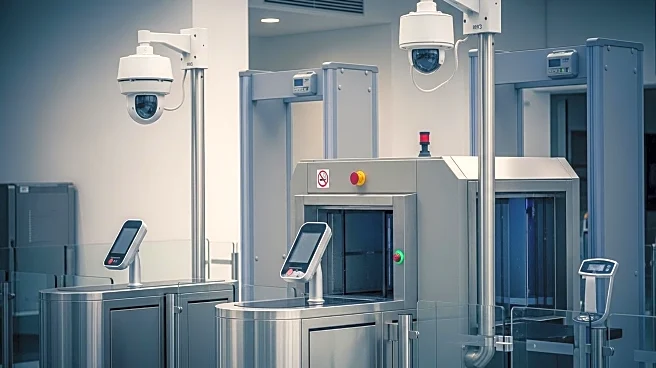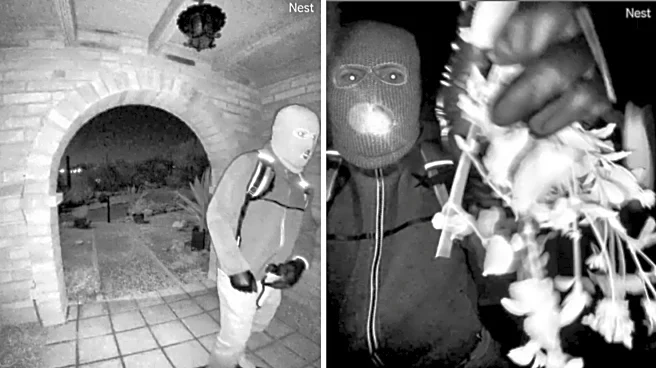What's Happening?
The recent assassination of Charlie Kirk at Utah Valley University has intensified discussions about security and free speech on college campuses. The incident occurred during an outdoor event attended by approximately 3,000 people, where the fatal shot was believed to have been fired from a rooftop. Despite the presence of six university police officers and Kirk's personal security detail, some attendees felt the security measures were insufficient, noting the absence of bag checks. Richard Beary, former police chief at the University of Central Florida, highlighted the challenge of balancing security needs with campus freedom, a task complicated by the lack of a standard formula for events featuring controversial speakers. The Foundation for Individual Rights and Expression (FIRE) expressed concerns about the impact of violence on democratic debate, emphasizing the importance of free speech on campuses.
Why It's Important?
This event underscores the ongoing tension between ensuring safety and preserving free speech in academic settings. The assassination of a public figure like Charlie Kirk raises questions about the adequacy of current security protocols and the potential chilling effect on free expression. The incident may lead to increased security measures at universities, potentially affecting the nature of public discourse and the willingness of speakers to engage in controversial discussions. The broader implications include a possible shift towards more restrictive environments, where safety concerns could overshadow the fundamental right to free speech, a cornerstone of democratic societies.
What's Next?
In response to the incident, universities may reassess their security strategies for events involving high-profile or controversial figures. This could involve more rigorous planning and collaboration between event organizers and law enforcement to ensure safety without stifling free expression. The concept of an 'assassin's veto,' where violence is used to silence speech, poses a significant threat to democratic principles, and stakeholders may need to address this challenge to prevent a cycle of political violence. Campus police chiefs, like Rodney Chatman of Brown University, advocate for maintaining open forums for idea exchange while enhancing security diligence.
Beyond the Headlines
The incident highlights a potential shift in societal norms regarding the acceptability of violence in political discourse. As more individuals view violence as a legitimate means to silence opposing views, there is a risk of escalating political violence, which could fundamentally alter the landscape of public debate. Universities, as microcosms of society, play a crucial role in modeling how to balance safety and free speech, and their response to this incident could set precedents for broader societal norms.










